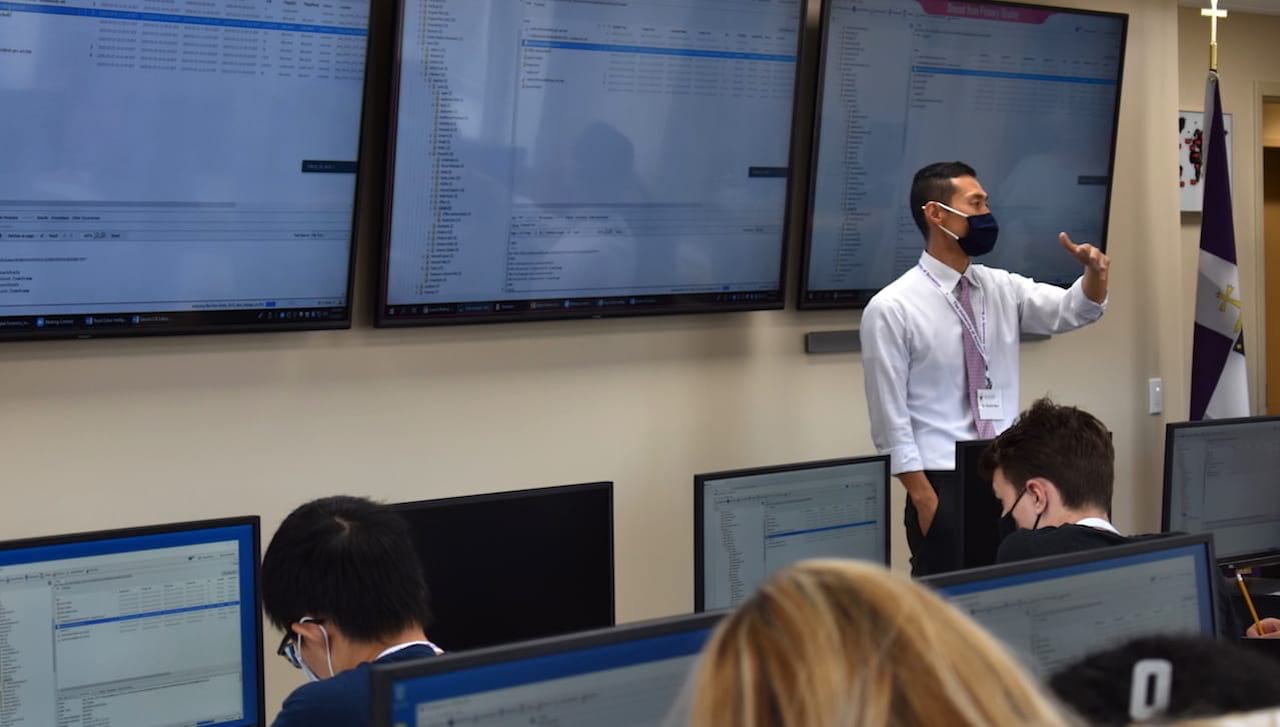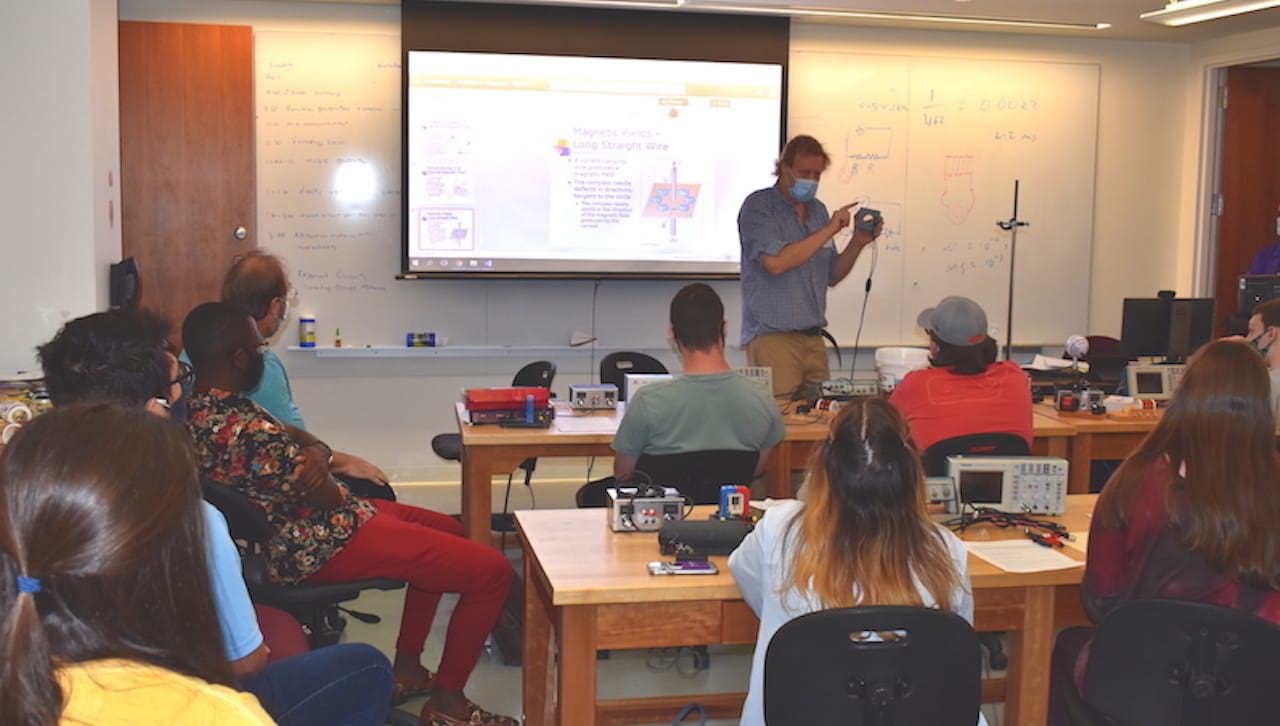University-run Summer Camps are a Success

The University ran two summer camps for high school students: physics and cybercrime investigation. Read about them, here.
UNIVERSITY HOLDS CYBERCRIME INVESTIGATION CAMP
 Nineteen high school students received hands-on training in investigating and thwarting cybercrimes from experts in the much-in-demand field of cyber security at The University of Scranton’s first Cybercrime Investigation Summer Camp. Run by faculty of the Department of Sociology, Criminal Justice and Criminology, the camp took place July 13-15 in the University’s Center for the Analysis and Prevention of Crime on campus.
Nineteen high school students received hands-on training in investigating and thwarting cybercrimes from experts in the much-in-demand field of cyber security at The University of Scranton’s first Cybercrime Investigation Summer Camp. Run by faculty of the Department of Sociology, Criminal Justice and Criminology, the camp took place July 13-15 in the University’s Center for the Analysis and Prevention of Crime on campus.
Through lectures, exercises, case discussions, the University’s data center tour, computer simulations and a capture-the-flag competition, the students learned about cyber threats, cybercriminal profiling, cyber law, cyber security and how to conduct a cyber forensics investigation. They also learned about the various roles and responsibilities assumed by professionals working in the growing field.
The job outlook for cybersecurity analysts is predicted to increase by 31 percent for the period between 2019 and 2029, according to the U.S. Bureau of Labor Statistics. The annual median salary for cybersecurity analysts in 2020 was $103,900. The University offers a major in cybercrime and homeland security.
The camp was offered free of charge to participants through support from the University’s College of Arts and Sciences Dean’s Office and the Department of Sociology, Criminal Justice and Criminology.
Read on, here.
UNIVERSITY HOLDS PHYSICS SUMMER CAMP High school students were introduced to the extraordinary world of physics at a summer camp hosted at The University of Scranton. The three-day camp for 9th and 10th grade high school students, taught by University physics faculty members, included mini-lectures and hands-on activities to introduce basic physics concepts of electricity and magnetism, as well as dramatic real-life examples of these principals in action.
High school students were introduced to the extraordinary world of physics at a summer camp hosted at The University of Scranton. The three-day camp for 9th and 10th grade high school students, taught by University physics faculty members, included mini-lectures and hands-on activities to introduce basic physics concepts of electricity and magnetism, as well as dramatic real-life examples of these principals in action.
At the camp, which took place July 19-21, 12 high school students learned about types of waves, oscilloscopes, magnetic coils, loudspeakers and software defined radio. They built a generator, a motor, and learned to use cutting edge Software Defined Radios (SDR). They installed and got to keep an actual SDR to use at home.
The students were also introduced to an array of much-in-demand careers available to physicists, or “supercharged engineers,” as the profession is described by Declan Mulhall, Ph.D., professor of physics and engineering at Scranton.
“Physicists have a depth of knowledge and training to give them a broad understanding of a subject and are able to apply their training to find solutions to complex problems and issues,” said Dr. Mulhall, who was among the faculty members leading the camp. “People always have to learn new technology to enter the workforce because of technological advances. Physics – and to some extent engineers – are the source of those advances, and we are training future physicists.”
Read on, here.






